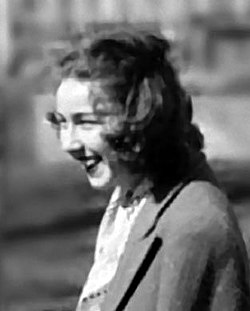Flannery O'Connor Quote
It was love without reason, love for something futureless, love that appeared to exist only to be itself, imperious and all demanding, the kind that would cause him to make a fool of himself in an instant.
Flannery O'Connor
It was love without reason, love for something futureless, love that appeared to exist only to be itself, imperious and all demanding, the kind that would cause him to make a fool of himself in an instant.
Tags:
parenting, unconditional love
Related Quotes
Good parents use the mistakes they did in the past when they were young to advice the children God gave to them to prevent them from repeating those mistakes again. However, bad parents always want to...
Israelmore Ayivor
Tags:
advice, advicing, advise, advising, angel, angelic, angels, bad character, bad life, bad parents
About Flannery O'Connor
Mary Flannery O'Connor (March 25, 1925 – August 3, 1964) was an American novelist, short story writer, and essayist. She wrote two novels and 31 short stories, as well as a number of reviews and commentaries.
O'Connor was a Southern writer who often wrote in a sardonic Southern Gothic style. She relied heavily on regional settings and grotesque characters, often in violent situations. In her writing, an unsentimental acceptance or rejection of the limitations, imperfections or differences of these characters (whether attributed to disability, race, crime, religion or sanity) typically underpins the drama.
O'Connor's writing often reflects her Catholic faith, and frequently examines questions of morality and ethics. Her posthumously compiled Complete Stories won the 1972 U.S. National Book Award for Fiction and has been the subject of enduring praise.
O'Connor was a Southern writer who often wrote in a sardonic Southern Gothic style. She relied heavily on regional settings and grotesque characters, often in violent situations. In her writing, an unsentimental acceptance or rejection of the limitations, imperfections or differences of these characters (whether attributed to disability, race, crime, religion or sanity) typically underpins the drama.
O'Connor's writing often reflects her Catholic faith, and frequently examines questions of morality and ethics. Her posthumously compiled Complete Stories won the 1972 U.S. National Book Award for Fiction and has been the subject of enduring praise.
